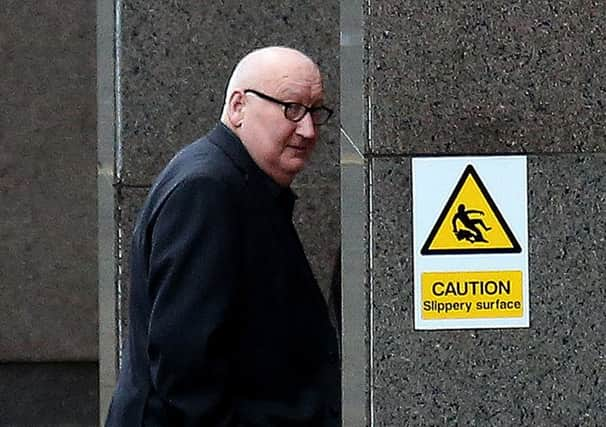Leader: We must have action after bin lorry crash inquiry


But the fatal accident inquiry into the incident, which resulted in six deaths when the lorry mounted the pavement and ploughed into festive shoppers in the city’s busy Queen Street, suggests the opposite is true.
The report found the driver, Harry Clarke, who had previously lost consciousness while in control of a bus, had lied on at least eight separate occasions to keep his job and his driving licence. Sheriff Beckett said he had “deliberately misled” and “deceived” his doctors, lied on health declarations and “deliberately concealed relevant information” from the driving authority.
Advertisement
Hide AdAdvertisement
Hide AdThe sheriff did not spare the 58-year-old, concluding that the accident would not have happened if he had been honest about his medical history.
The verdict contains no great revelations – the main findings are what most observers would have expected. However, this does not change the Crown Office’s decision not to prosecute Clarke. Indeed, the Crown has been quick to state that the report provides vindication of its decision, and reminds us that the standard of proof required in a criminal court would have been much higher than for the inquiry.
That is true, but the issue remains that the Crown did not allow that standard of proof to be put to the test. The Crown judged the case before the evidence of the FAI had been heard, and since then has struggled to convince with attempts to justify that early decision.
The Crown’s decision stands, yet it is clear that the victims have been seriously let down, and it is little wonder that a private prosecution looks set to go ahead.
It is understandable that a family who lost three members that day is now instructing their lawyers to take action against Mr Clarke, who voluntarily resigned his post at Glasgow City Council while investigations were under way.
But if there is no means by which the courts can pursue an individual who has deliberately lied to put himself in a situation that endangers the lives of others, then a reassessment of the law is urgently required. Clarke lied for personal gain, and the deterrent was not robust enough to prevent him taking that course of action.
So it is encouraging that the FAI report recommends, among 19 measures, that the method of prosecution for non-disclosure should be altered. As solicitor David Wilson says, Clarke is not unique. Many take the risk of non-disclosure and get away with it. No-one has ever been prosecuted in Scotland for false declaration.
The lax system that allowed this accident to happen has failed the grieving families. The inquiry’s recommendations should be implemented, and we should not have to face another situation where deceit can cause such carnage.
Advertisement
Hide AdAdvertisement
Hide AdThat Clarke has landed the blame is of little consolation to those who lost a friend or relative in last year’s tragedy.
Second chamber case is not made
So Labour peer George Foulkes is calling for the former Royal High School on Edinburgh’s Calton Hill to become the home for a new Scottish equivalent to the House of Lords.
The old school, empty since 1968, had previously been earmarked as a possible site for the Scottish Parliament. Now Baron Foulkes of Cumnock is proposing a 46-member senate should be elected to scrutinise legislation.
It’s certainly a grand idea. It might go some way towards counteracting SNP domination of the Scottish Parliament, which makes it hard to monitor the administration.
However, the current state of play is largely a consequence of ineffective opposition and has lasted only a single term so far. Let’s not forget it is also our first majority government. Prior to the last Holyrood election, the SNP held only one more seat than Labour. Do we build another level of government on the results of one election? Lord Foulkes appears to have sorted out the venue, stating that a second chamber would be a far more worthy use of the building than a fancy hotel or a music school.
He might be right – though his case is weakened when he says members would not need to be full-time. Under his master plan the building would again sit empty for much of the time.
But perhaps before deciding where this new senate will sit, the baron should set out a convincing case for creating a second chamber. Is it necessary? Is it wanted? Is it affordable?
At a time of austerity and cuts, it is doubtful there would be public support for a costly new chamber. It is even less likely there is an appetite for yet more elected politicians.
The idea has plenty going for it, but it remains far from being a persuasive case.